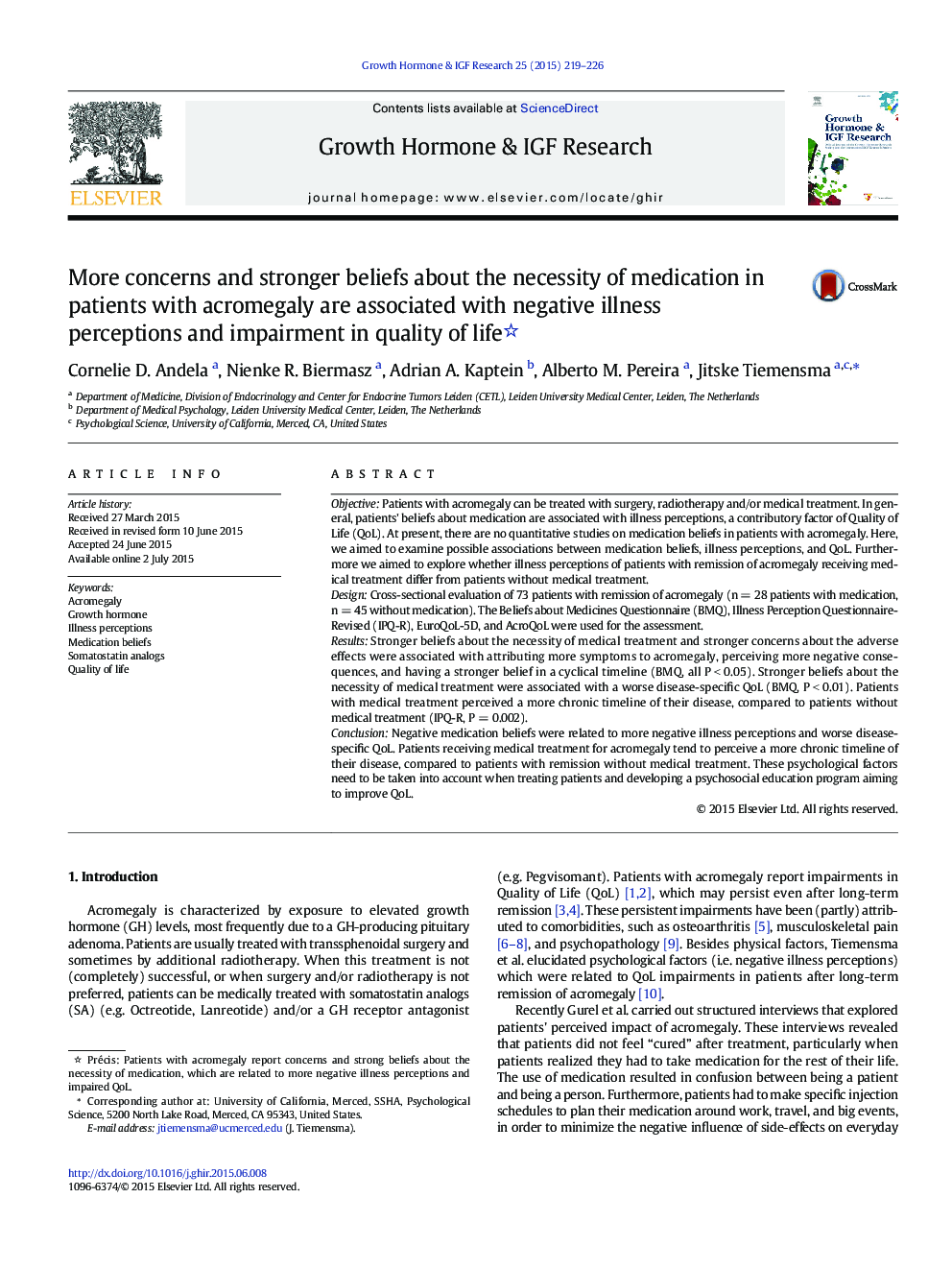| کد مقاله | کد نشریه | سال انتشار | مقاله انگلیسی | نسخه تمام متن |
|---|---|---|---|---|
| 2802536 | 1156687 | 2015 | 8 صفحه PDF | دانلود رایگان |
• Beliefs about the necessity of medicine in acromegaly correlate with negative illness perceptions.
• Beliefs about the necessity of medicine in acromegaly correlate with worse quality of life.
• Concerns about medicines in acromegaly correlate with negative illness perceptions.
• Patients with medical treatment perceive a more chronic timeline of acromegaly.
ObjectivePatients with acromegaly can be treated with surgery, radiotherapy and/or medical treatment. In general, patients' beliefs about medication are associated with illness perceptions, a contributory factor of Quality of Life (QoL). At present, there are no quantitative studies on medication beliefs in patients with acromegaly. Here, we aimed to examine possible associations between medication beliefs, illness perceptions, and QoL. Furthermore we aimed to explore whether illness perceptions of patients with remission of acromegaly receiving medical treatment differ from patients without medical treatment.DesignCross-sectional evaluation of 73 patients with remission of acromegaly (n = 28 patients with medication, n = 45 without medication). The Beliefs about Medicines Questionnaire (BMQ), Illness Perception Questionnaire-Revised (IPQ-R), EuroQoL-5D, and AcroQoL were used for the assessment.ResultsStronger beliefs about the necessity of medical treatment and stronger concerns about the adverse effects were associated with attributing more symptoms to acromegaly, perceiving more negative consequences, and having a stronger belief in a cyclical timeline (BMQ, all P < 0.05). Stronger beliefs about the necessity of medical treatment were associated with a worse disease-specific QoL (BMQ, P < 0.01). Patients with medical treatment perceived a more chronic timeline of their disease, compared to patients without medical treatment (IPQ-R, P = 0.002).ConclusionNegative medication beliefs were related to more negative illness perceptions and worse disease-specific QoL. Patients receiving medical treatment for acromegaly tend to perceive a more chronic timeline of their disease, compared to patients with remission without medical treatment. These psychological factors need to be taken into account when treating patients and developing a psychosocial education program aiming to improve QoL.
Journal: Growth Hormone & IGF Research - Volume 25, Issue 5, October 2015, Pages 219–226
